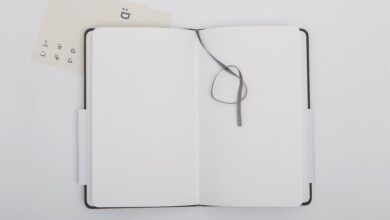The Power of Reflection: How Keeping a Diary Can Benefit Your Mental Health

The Power of Reflection: How Keeping a Diary Can Benefit Your Mental Health
In today’s fast-paced world, it can be challenging to find time for self-reflection and self-care. As we juggle work, family, and social commitments, it’s easy to overlook the importance of taking a moment to pause and reflect on our thoughts and feelings. However, the act of reflection can have significant benefits for our mental health, and one simple but powerful tool for achieving this is keeping a diary.
Keeping a diary or journal is not a new concept. People have been documenting their thoughts and experiences for centuries, and for good reason. The act of writing down our thoughts and feelings can be incredibly therapeutic and can provide a number of mental health benefits. In this article, we’ll explore the power of reflection and how keeping a diary can help support our mental well-being.
The Benefits of Reflection
Self-reflection is an essential part of personal growth and self-awareness. It allows us to examine our thoughts, emotions, and behaviours, and gain insights into our own mental and emotional well-being. By taking the time to reflect on our experiences, we can identify patterns, triggers, and sources of stress or anxiety, and work towards addressing and managing them.
Reflection can also help us gain perspective and clarity on our emotions and reactions. It can enable us to recognise unhelpful thought patterns or negative self-talk, and find more positive and constructive ways of thinking. In addition, reflection can help us clarify our goals, values, and aspirations, and make decisions that are aligned with our true desires and intentions.
The Mental Health Benefits of Keeping a Diary
One effective way to engage in regular reflection is by keeping a diary or journal. Writing down our thoughts and feelings can be a powerful tool for processing and expressing our emotions, and can provide a number of mental health benefits. Here are some of the ways that keeping a diary can support our mental well-being:
1. Stress Reduction: The act of writing down our thoughts and feelings can be a cathartic and stress-relieving process. Getting our emotions out on paper can help us release pent-up tension and process stressful or difficult experiences.
2. Emotional Regulation: Keeping a diary can help us identify and regulate our emotions. By writing down our feelings, we can gain insight into our emotional experiences and learn to manage them more effectively.
3. Self-Awareness: Regular reflection through diary writing can increase self-awareness, enabling us to gain a better understanding of our thoughts, emotions, and behaviours. This self-awareness can lead to increased self-compassion and self-acceptance.
4. Problem-Solving: Writing about our problems and concerns can help us gain clarity and perspective on difficult situations, facilitating problem-solving and decision-making.
5. Gratitude and Positivity: Keeping a gratitude journal can help us focus on the positive aspects of our lives, and cultivate a more optimistic and positive outlook.
6. Goal Setting and Progress Tracking: Writing down our goals and aspirations, and tracking our progress towards them, can help us stay motivated and focused on our personal growth and development.
How to Start Keeping a Diary
If you’re interested in reaping the mental health benefits of keeping a diary, here are some tips to get started:
1. Find the Right Medium: Decide whether you want to keep a physical diary or an online journal. Some people prefer the tactile experience of writing in a notebook, while others find digital platforms more convenient and accessible.
2. Set a Regular Writing Schedule: Choose a time of day that works best for you, whether it’s in the morning, before bed, or during your lunch break. Set aside a few minutes each day to engage in reflection through diary writing.
3. Write Freely and Honestly: Write without judgment or self-censorship. Allow yourself to express your thoughts and feelings openly and honestly, without worrying about anyone else reading it.
4. Experiment with Different Formats: Consider different types of diary writing, such as free-form writing, bullet journaling, gratitude journaling, or specific prompts and exercises for reflection.
5. Reflect and Review: Take time to reflect on your previous entries and look for patterns, insights, and opportunities for personal growth.
In conclusion, self-reflection is a powerful tool for supporting mental health, and keeping a diary can be an effective way to engage in regular reflection. By writing down our thoughts and feelings, we can reduce stress, regulate our emotions, increase self-awareness, and promote positive mental well-being. If you’re looking to enhance your mental health and well-being, consider starting a diary and make reflection a regular part of your self-care routine.





